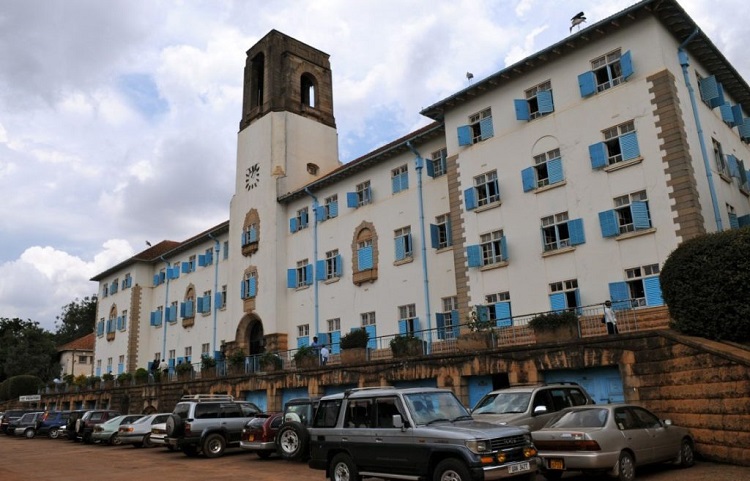On the second day of March this year amidst increased reports of sexual harassment at Makerere University, the university’s Vice-Chancellor Professor Barnabas Nawangwe instituted a committee of five to investigate into the matter.
Led by Professor Sylvia Tamale, the committee combed through the 96-year-old institution and its surrounding community focusing on finding out what was causing the observed surge in the vice.
After determining the causes, the committee was to review the existing (12-year-old) policy on sexual harassment and make recommendations for its improvement.
After more than a month in the field, the committee discovered that there are several factors fuelling sexual harassment at Makerere University (Mak) and these among eleven others are the abuse of power, enabling environment, lack of awareness, poor academic monitoring and mentoring systems, alcohol abuse and women dress style.
On June 8, the committee rolled out their findings in a 42-page report, which was informed from interviewing participants from the ten Colleges and the main administrative units of the University. Women constituted 59% of the people that were interviewed. The reason for this, the committee said, is because women remain the major victims of sexual harassment, citing figures indicating that men occupy more positions of power at the institution that women. For instance, all the top 6 management positions at Mak are occupied by men and the university’s academic staff association is comprised of only men.
In their report, the committee recommended several measures (immediate, medium- and long-term) that will guide on reviewing existing university policies, investigating and disposing of cases, improving campus environment, raising awareness and training in order to eliminate the vice.
SautiTech, in this piece, focuses on information and technology (IT) measures that were suggested.
To begin with, the committee observed that the physical infrastructure and organizational environment at Makerere University are highly conducive to serial sexual harassment. For instance, they reported, most buildings do not have 24-hour security or surveillance cameras. Although street lighting has improved tremendously, they observed, there are still several dark spots along some walkways.
To tackle this problem, the committee recommended that by May 31,2019, the University Council (UC) should ensure that CCTV, or, closed-circuit television cameras are installed “in strategic places·” By May 31, 2019, the Gender Mainstreaming Directorate (GMD) alongside the University Council were also requested to secure the campus perimeter and all entry points. This, according to the committee’s report, should also be enhanced by developing a card access system to university buildings.
The committee also recommended that a standardized online training module on sexual harassment be developed. According to the committee, this training should be compulsory for both staff and students as the university moves to review the key issues in the sexual harassment policy.
To be undertaken by GMD, College of Computing and Information Science (COCIS) School of Law (SOL), School of Women and Gender Studies (SOWGS), the committee recommends that this system should also be in place May 31, 2019.
During their investigations, the committee also realised that the existing means of reporting sexual harassment cases were a bit ineffective, and they have therefore proposed that the Directorate of Gender Mainstreaming should team up with that of Legal Affairs (DLA) and the Counselling and Guiding Centre (UCGC) to install special sexual harassment and assault hotlines, which victims of sexual violence can use to report the crime at the university.
The new policy, the committee proposed, should allow for both informal and formal systems of reporting.
“Complaints of sexual harassment can be reported to the GMD, DLA and UCGC or any person of authority that the victim trusts,” reads the report in part. “Online reporting should also be available. The university should implement an online sexual abuse reporting system such as Callisto. In addition, the GMD, DLA and UCGC should create sexual assault and harassment complaint boxes for victims to drop complaints.”
The committee also suggested that Clause 7 of the existing policy, which enumerates “Examples of Sexual Harassment”, be renamed “Examples of Sexual Harassment and Abuse.” With the new naming, the examples will now include cyber-based harassment such as trolling through tweets; “sexting” and other social media platforms; taking unwanted pictures and sharing them.
In view of the victims’ fear of retaliation, advised the committee, the policy should allow for alternative modes of presenting testimonies at the request of the victim; for example, via two-way CCTV, pre-recorded video or written evidence.
Record keeping
Another system that needs to be reviewed at Mak, according to the committee, is the Record Keeping Policy. The committee says it needs revising in order to incorporate a comprehensive Students Academic Records Management component.
“In particular, the university must overhaul and streamline the online management system that it offers to students for purposes of registration, access to examination results, checking of financial statements and other academic files,” the committee suggested.
The other area that has led to the perpetration of sexual harassment at Makerere University is the examination system. The committee recommended some measures that need to be implemented in order to shake it up.
“The university should develop a fair and transparent system of assessment of examinations, including well-defined evaluative criteria and a meaningful system of feedback,” reads the report.
“To this end, it should formulate a Grading Policy23 that would, for example, charge each College/School to develop clear grading systems that ensure examination integrity, substantive feedback to students about their performance and online appeals for students with academic difficulties.”

